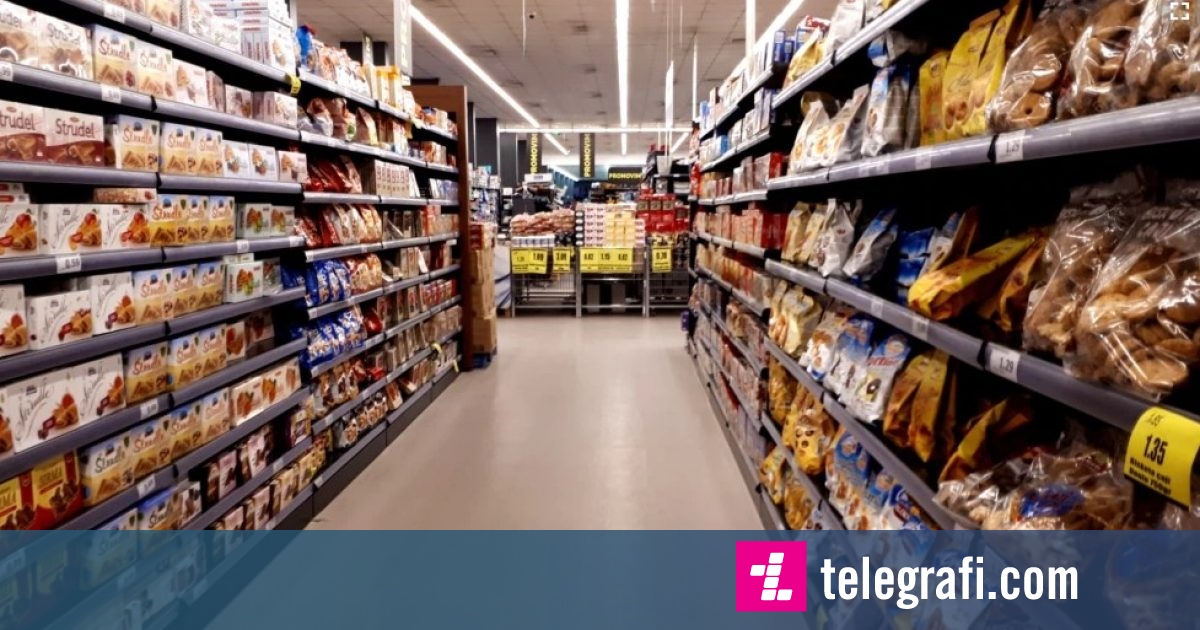In the Kosovo market, during this year, a smaller amount of products was imported, compared to the same period of 2021, but imports were paid more expensively.
Kosovo Customs data for the period from January to May 20, show that Kosovo has imported 1.6 billion kilograms of various products, with a financial value of about two billion euros.
During the same period last year, 1.9 kg of products were imported, which cost over 1.5 billion euros.
In other words, the quantity of imported goods has decreased by 11 percent, while their financial value has increased by 21 percent.
Kosovo imports up to 90 percent of the products it needs - from food to construction.
The Minister of Finance and Transfers of Kosovo, Hekuran Murati, said in a meeting of the Government, days ago, that the increase of the financial value of imports - which means increase of revenues in the State Customs - is a result of economic growth in Kosovo and the collapse of the informal economy.
Revenues in Kosovo Customs fill the state coffers, the same as revenues in the Tax Administration of Kosovo.
The latter has also announced that from January 1 to May 20, 2021, it has collected about 229 thousand euros, while in the same period of this year, the value has reached over 303 thousand euros.
"There is no place to be proud"
According to economics experts, there is no room for boasting.
They say that the increase in the financial value of imports is not the result of institutions that raise budget funds, but of rising world prices.
"I think that part of this increase can not necessarily be attributed only to the results of Customs, because here the increase in prices has had an impact," says Naim Huruglica, former director of Kosovo Customs.
The prices of products and services in the world have started to rise as a result of the coronavirus pandemic, which broke out in March 2020. They were also boosted by the Russian war in Ukraine, which started in February, as both of these countries are major exporters of cereals and metals.
In Kosovo, inflation - or rising prices for products and services - was 11.2 percent in April.
Professor of Economics and Finance at the University of Prishtina, Ujkan Bajra, says that over 30 percent of the financial value of imports is the result of inflation and not of increased consumption or economic development.
This, according to him, is evidenced by the reduction of the quantity of imported products, which means "decrease in purchasing power".
"[The government] has no place to be proud, but there is plenty of room to work.
"With concrete actions, not with empty words, not with alms, to provide financial, economic stability and well-being for the citizens, because the prices are enormous", says Bajra for Radio Free Europe.
The Government of Kosovo, last month, allocated 100 million euros in assistance to various categories of society: pensioners, public and private sector workers, students and families with social assistance.
However, economics experts have interpreted this as short-term assistance rather than long-term solutions.
According to them, the consequences of the economic crisis "can not be mitigated by quick decisions."
Moreover, some projections of the Central Bank in Kosovo, published in March, have shown that Kosovo's economy, as a result of the war in Ukraine, will slow down this year.
According to them, economic growth will slow to about 3.3 percent, from 10.5 percent in 2021.
Inflation and imports in some Balkan countries
Inflation in northern Macedonia has reached over 10 percent this year.
According to the State Statistical Office there, the value of goods imported in January-March increased by 29 percent more than in the same period of the previous year.
Even in Albania, inflation in April went to 6.2 percent, while the financial value of imported goods increased by about 27 percent./REL
